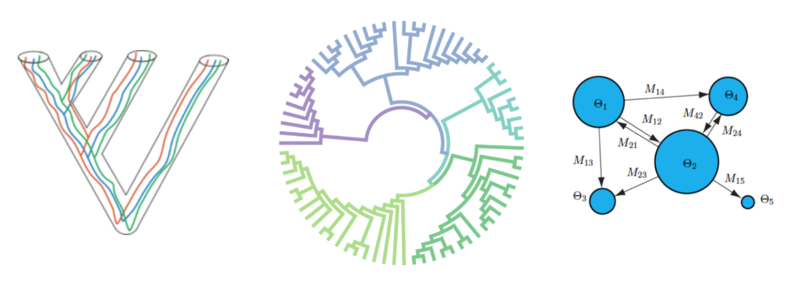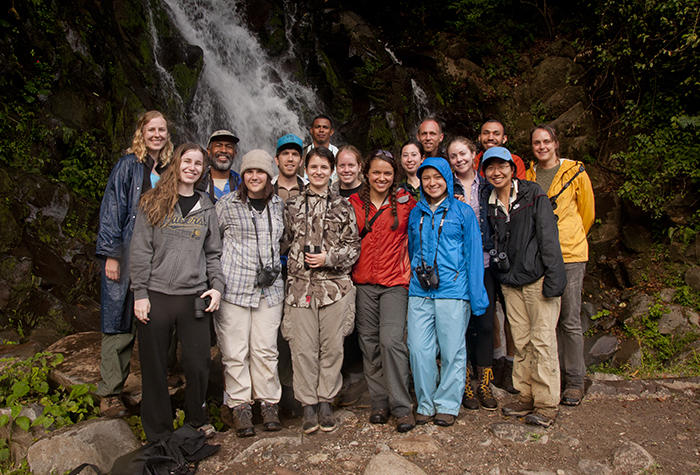
Fall 2017: OEB 275r "Phylogenetics and Phylogeography in the Era of Genomics"
The course will review the recent literature on methods of analysis in phylogenomics and phylogeography, with particular attention to analysis of large-scale data sets; accommodating gene tree heterogeneity; adequacy of models at the level of DNA sequence evolution and demographic history; and estimation of critical parameters of population history, such as phylogenetic relationships, reticulate evolutionary histories, rates of gene flow and species boundaries. Weekly sessions will consist of presentations and discussions led by students and by international experts, including hands-on sessions working with state-of-the-art software.
Fall 2016: OEB125 "Molecular Ecology and Evolution" with Teaching Assistant Phil Grayson
Spring 2016: OEB 190 "Biology and Diversity of Birds"
An introduction to the biology of birds. Covers the fossil record and theories for avian origins, physiology and anatomy, higher-level systematics and field characters of the ~27 orders, speciation processes, nesting and courtship behavior, vocalizations, mating systems and sexual selection, cooperative breeding, demography and conservation. Optional field trip during spring break. Laboratories will consist of gross anatomy, bird watching excursions in the Cambridge area, field techniques and specimen preparation, and systematic study of avian groups using the collections of the Museum of Comparative Zoology. Prerequisites: OEB 10 or OEB 53 or permission of the instructor.
Fall 2015: Freshman Seminar "The Evolutionary Transition from Dinosaurs to Birds: Fossils, genomes, and behavior"
As part of their immersion into the dinosaur world, the students spent hours among fossils and specimens in the paleontology and ornithology collections of the MCZ, sequenced DNA and skyped with leading paleontologists from China to Texas.
Spring 2013: OEB 275br "Evolutionary Genomics and the Museum: Enhancing insight into evolutionary processes using museum collections"
This semester we will explore through lectures, videocasts and discussion the ways in which museum collections and online museum databases can enhance modern studies of genomic and geographic variation. Lecture topics will review the state of the art with regard to using genomics to study geographic variation, and in-class demonstrations will link such studies to museum and biodiversity databases and explore the reciprocal benefits of doing so. Some lectures will be held remotely and given by video by scientists at institutions participating in AIM-UP!, a NSF-funded multi-institution research network aimed at enhancing undergraduate education through museum collections.
Fall 2012: OEB 275r "Phylogenomics, Comparative Genomics and Adaptation"
This semester we will explore through readings of the recent literature the ways in which comparative genomics can inform phylogeny and genomic adaptation. In addition to surveying recent methods for harnessing thousands of loci for phylogenetic reconstruction, we will also study how comparing genomes of higher clades can reveal signatures of adaptation, particularly in the noncoding portion of the genome. Prerequisites: OEB 53, OEB 181, OEB 125 or equivalent.

|
| Western Panama, OEB190 Spring break field trip, 2012 |
